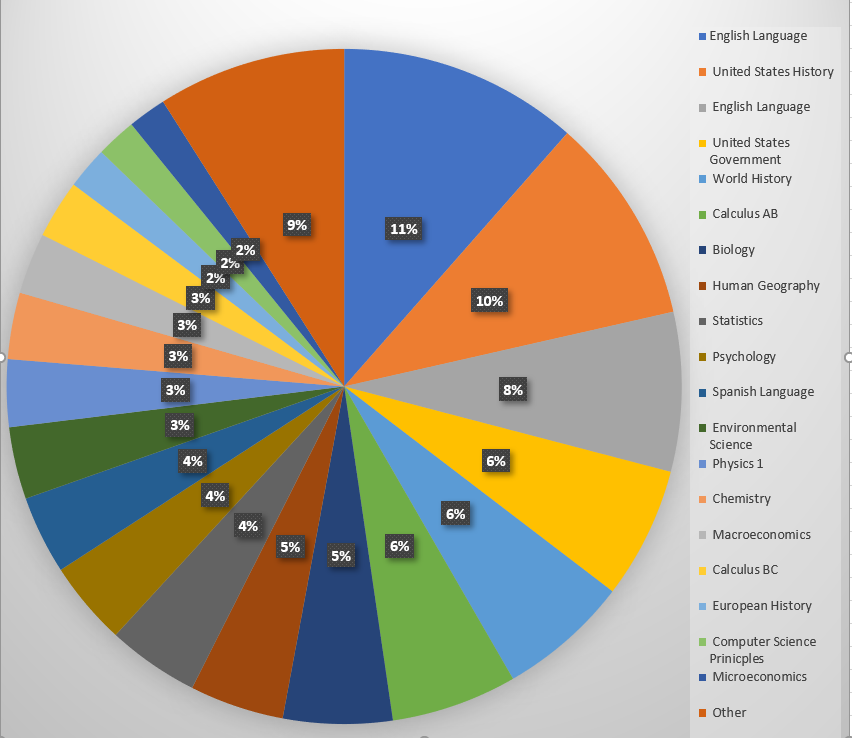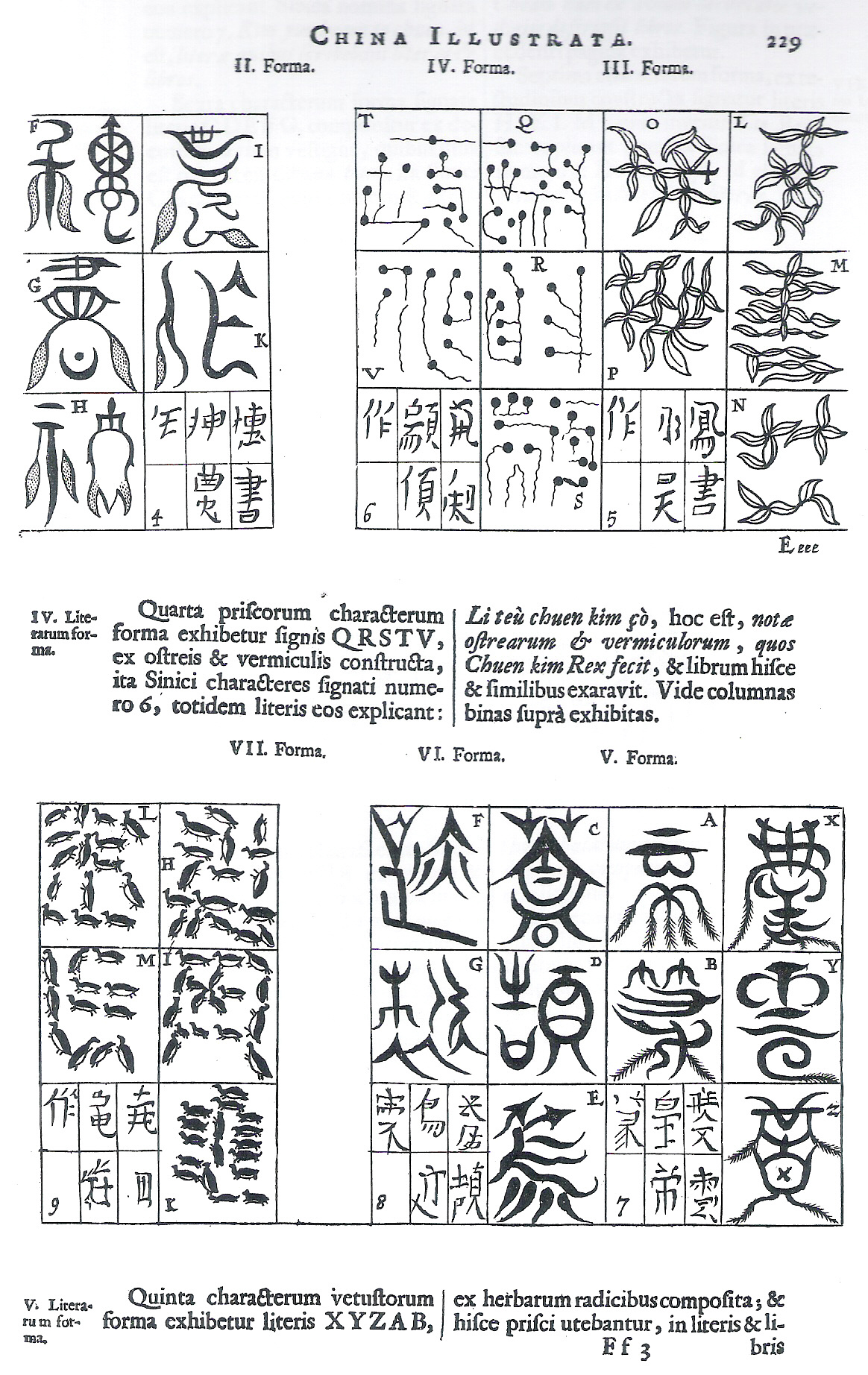|
AP Chinese Language And Culture
Advanced Placement (AP) Chinese Language and Culture (commonly known as AP Chinese) is a course and exam offered by the College Board as a part of the Advanced Placement Program in the United States. It requires proficiencies throughout the Intermediate range as described in the American Council on the Teaching of Foreign Languages (ACTFL) Proficiency Guidelines. The course interweaves language and culture learning and is conducted mostly in Mandarin Chinese. The first AP Chinese courses were offered worldwide in the fall of 2006, followed by the exam in May 2007. Topic outline The course consists of six units, covering key topics relevant to both the coursework and the exam. Exam The AP Chinese Language and Culture Exam is approximately 2 hours and 15 minutes in length. It assesses Interpersonal, Interpretive, and Presentational communication skills in Mandarin Chinese, along with knowledge of Chinese culture. Section I consists of multiple-choice questions. * Part A: List ... [...More Info...] [...Related Items...] OR: [Wikipedia] [Google] [Baidu] |
College Board
The College Board, styled as CollegeBoard, is an American not-for-profit organization that was formed in December 1899 as the College Entrance Examination Board (CEEB) to expand access to higher education. While the College Board is not an association of colleges, it runs a membership association of Educational institution, institutions, including over 6,000 schools, colleges, universities, and other educational organizations. The College Board develops and administers standardized tests and curricula used by K–12 and post-secondary education institutions to promote college-readiness and as part of the college admissions process. The College Board is headquartered in New York City. David Coleman (education), David Coleman has been the CEO of the College Board since October 2012. He replaced Gaston Caperton, former List of governors of West Virginia, governor of West Virginia, who had held this position since 1999. The current president of the College Board is Jeremy Singer. I ... [...More Info...] [...Related Items...] OR: [Wikipedia] [Google] [Baidu] |
Advanced Placement Program
Advanced Placement (AP) is a program in the United States and Canada created by the College Board. AP offers undergraduate university-level curricula and examinations to high school students. Colleges and universities in the US and elsewhere may grant placement and course credit to students who obtain qualifying scores on the examinations. The AP curriculum for each of the various subjects is created for the College Board by a panel of experts and college-level educators in that academic discipline. For a high school course to have the designation as offering an AP course, the course must be audited by the College Board to ascertain that it satisfies the AP curriculum as specified in the Board's Course and Examination Description (CED). If the course is approved, the school may use the AP designation and the course will be publicly listed on the AP Course Ledger. History 20th century After the end of World War II, the Ford Foundation created a fund that supported committ ... [...More Info...] [...Related Items...] OR: [Wikipedia] [Google] [Baidu] |
ACTFL Proficiency Guidelines
ACTFL (American Council on the Teaching of Foreign Languages) is an organization aiming to improve and expand the teaching and learning of all languages at all levels of instruction. ACTFL is an individual membership organization of more than 11,000 language educators and administrators from elementary through graduate education, as well as in government and industry. Founded in 1967 as a small offshoot of the Modern Language Association (MLA), ACTFL quickly became both a resource and a haven for language educators. Since then, the organization has set industry standards, established proficiency guidelines, advocated for language education funding, and connected colleagues at the ACTFL Annual Convention. Presidents *2024: Milton Alan Turner *2023: Akash Patel *2022: Victoria Russell *2021: Jessica Haxhi *2020: Bridget Yaden *2019: Lisa Ritter *2018: Aleidine Moeller *2017: Desa Dawson *2016: Pete Swanson *2015: Jacque Bott van Houten *2014: Mary Lynn Redmond *2013: Toni Thei ... [...More Info...] [...Related Items...] OR: [Wikipedia] [Google] [Baidu] |
Mandarin Chinese
Mandarin ( ; zh, s=, t=, p=Guānhuà, l=Mandarin (bureaucrat), officials' speech) is the largest branch of the Sinitic languages. Mandarin varieties are spoken by 70 percent of all Chinese speakers over a large geographical area that stretches from Yunnan in the southwest to Xinjiang in the northwest and Heilongjiang in the northeast. Its spread is generally attributed to the greater ease of travel and communication in the North China Plain compared to the more mountainous south, combined with the relatively recent spread of Mandarin to frontier areas. Many varieties of Mandarin, such as Southwestern Mandarin, those of the Southwest (including Sichuanese dialects, Sichuanese) and the Lower Yangtze Mandarin, Lower Yangtze, are not mutually intelligible with the Beijing dialect (or are only partially intelligible). Nevertheless, Mandarin as a group is often placed first in lists of languages by number of native speakers (with nearly one billion). Because Mandarin originated in ... [...More Info...] [...Related Items...] OR: [Wikipedia] [Google] [Baidu] |
AP Japanese Language And Culture
Advanced Placement (AP) Japanese Language and Culture (also known as AP Japanese) is a course offered by the College Board as part of the Advanced Placement Program in the United States. It is intended to give students a thorough background in the Japanese language and Japanese social customs. The class was first given as a certified College Board program in the 2006–07 school year. Preparations for the corresponding test were made, but the complex computer and internet requirements were not fully sorted out by administration time, and the exam was not given in some areas. Exam outline Similar to the AP Chinese Language and Culture test, the exam is taken on a computer, requiring participants to read, write, and speak in Japanese, utilizing computers, headphones, and microphones. The 2012 exam was split mainly into two sections. Section I Students must answer multiple choice questions in response to audio prompts and short texts. Section II Students compose free-response ans ... [...More Info...] [...Related Items...] OR: [Wikipedia] [Google] [Baidu] |
Chinese As A Foreign Language
Chinese as a foreign or second language is when non-native speakers study varieties of Chinese, Chinese varieties. The increased interest in China from those outside has led to a corresponding interest in the study of Standard Chinese (a type of Mandarin Chinese) as a foreign language, the official language of People's Republic of China, mainland China, Taiwan and Singapore. However, the teaching of Chinese language, Chinese both within and outside China is not a recent phenomenon. Western world, Westerners began learning different Chinese varieties in the 16th century. Within China, Mandarin became the official language in the early 20th century. Mandarin also became the official language of Taiwan when the Kuomintang took over control from Japan after World War II. In 2010, 750,000 people (670,000 from overseas) took the Hanyu Shuiping Kaoshi, Chinese Proficiency Test. For comparison, in 2005, 117,660 non-native speakers took the test, an increase of 26.52% from 2004. From 2000 ... [...More Info...] [...Related Items...] OR: [Wikipedia] [Google] [Baidu] |
Language Education In The United States
Language education in the United States has historically involved teaching English to immigrants; and Spanish, French, Latin, Italian or German to native English speakers. Bilingual education was sponsored in some districts, often continuously. Japanese language education in the United States increased following the Japanese post-war economic miracle. To participate, the government increased funding to teaching Japanese in schools. Chinese as a second language began to be taught more frequently in response to the reform and opening of the People's Republic of China; this has included funding from the PRC Government. In the aftermath of the September 11 terrorist attacks, US Senator Norm Coleman Norman Bertram Coleman Jr. (born August 17, 1949) is an American politician, attorney, and lobbyist. From 2003 to 2009, he served as a United States Senate, United States Senator for Minnesota. From 1994 to 2002, he was mayor of Saint Paul, Mi ... called Arabic language, ... [...More Info...] [...Related Items...] OR: [Wikipedia] [Google] [Baidu] |
Chinese Language Tests
Chinese may refer to: * Something related to China * Chinese people, people identified with China, through nationality, citizenship, and/or ethnicity **Han Chinese, East Asian ethnic group native to China. **''Zhonghua minzu'', the supra-ethnic concept of the Chinese nation ** List of ethnic groups in China, people of various ethnicities in contemporary China ** Ethnic minorities in China, people of non-Han Chinese ethnicities in modern China ** Ethnic groups in Chinese history, people of various ethnicities in historical China ** Nationals of the People's Republic of China ** Nationals of the Republic of China ** Overseas Chinese, Chinese people residing outside the territories of mainland China, Hong Kong, Macau, and Taiwan * Sinitic languages, the major branch of the Sino-Tibetan language family ** Chinese language, a group of related languages spoken predominantly in China, sharing a written script (Chinese characters in traditional and simplified forms) *** Standard Chines ... [...More Info...] [...Related Items...] OR: [Wikipedia] [Google] [Baidu] |


